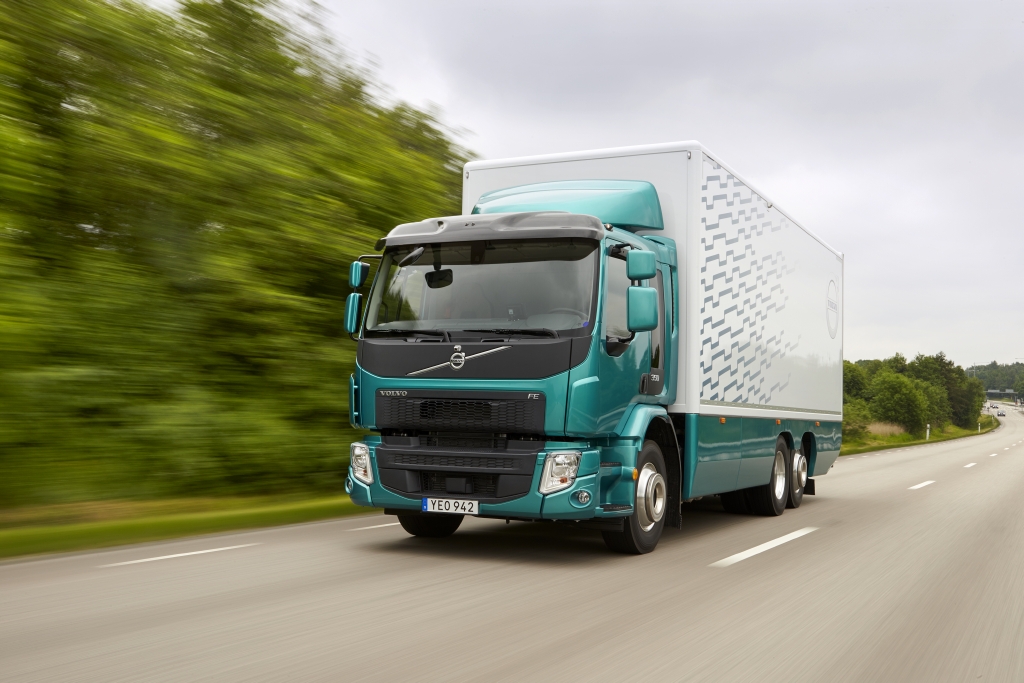More and more stringent emission standards, subsequent prohibitions for diesel vehicles in European metropolises and a vision of savings not only on fuel but also on road tolls. These are just some of the arguments that convince companies to move away from diesel and invest in electric vehicles.
Electric trucks and distributors are gaining more and more popularity among European transport and production companies. At the end of November, the switch to “electrics” was announced by the German logistics operator DB Schenker. The company has committed itself to tighten the goal of reducing carbon dioxide emissions in light commercial vehicles.
It is possible to achieve a 20 percent reduction in emissions by 2025 caused by trucks with a GVW of 7.5 tonnes, and by 2030 by 35 percent,” said DB Schenker CEO, Jochen Thewes.
– I believe we can and must do it – he added.
In addition, DB Schenker plans to equip all vehicles up to 3.5 t with electric drives or fuel cells by 2030. By then, half of the vehicles with a weight of 3.5 to 7.5 tonnes will also be electrically powered.
According to Thewes, achieving a structural transformation in the automotive industry and the availability of alternative propulsion technologies in freight transport will make the goals set by the company “absolutely feasible”.
The operator already uses electric vehicles in Austria, Italy and Norway. Additionally, in several European cities, it uses electric load bikes.
Initiative EV 100
DB Schenker, deciding to gradually transform the fleet, joined the global initiative EV 100 (Electric Vehicles, EV). Its aim is to accelerate the development of transport with the use of electric vehicles and build the necessary infrastructure. EV 100 was created in September 2017 in New York by The Climate Group during a meeting of business leaders and politicians as part of the Climate Week in New York.
The initiative is to encourage companies from around the world and all industries to take action to promote and popularize electric vehicles. Members of EV 100 are committed to completely abandon the use of diesel cars in the next dozen or so years. The partners and founders of the initiative include Baidu, Deutsche Post DHL, IKEA Group, LeasePlan and Unilever.
Electric cars will be cheaper
Thanks to the electric truck, the carrier will not only save on fuel. In Germany from next year, electric vehicles will be excluded from tolls. It should be remembered that the costs of companies related to the toll in Germany have increased drastically and will continue to grow. In July this year, tolls were extended to all federal roads. In turn, at the beginning of next year, the toll rates will increase in Germany by approx. 60 percent.
Editor’s comment
The future usually comes faster than we expect. In the last two years, almost all large players on the automotive market have declared the introduction of utility vehicles with electric drive into their offer. There were also a few less known producers, such as Thor, Nikola or … Tesla, who focus only on electric vehicles. Still, many industry representatives refer to this technology with reserve, thinking that it is rather a song of future generations. But these vehicles are a reality now (and up to 3.5 t in the production models). It is quite easy to imagine that with the current rate of technology development, the electric drive will become a standard in 10 years. The biggest players are not waiting and they are beginning to invest in electric vehicles now before they become an ordinary tool of work. Therefore, in order to face competition in the future, we should not be left behind and downplay the development of this technology. Or any other.
Photo: Volvo Trucks









